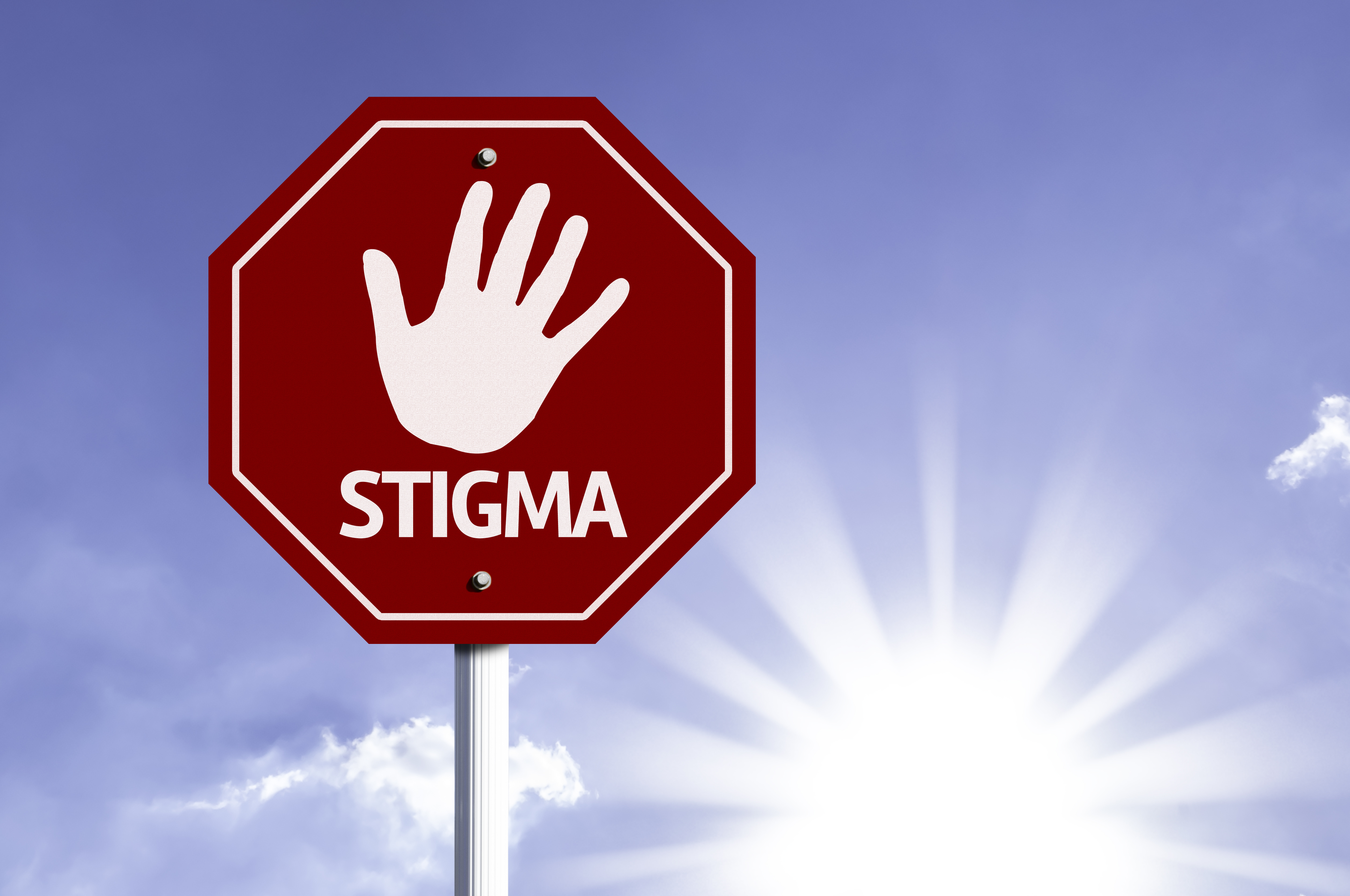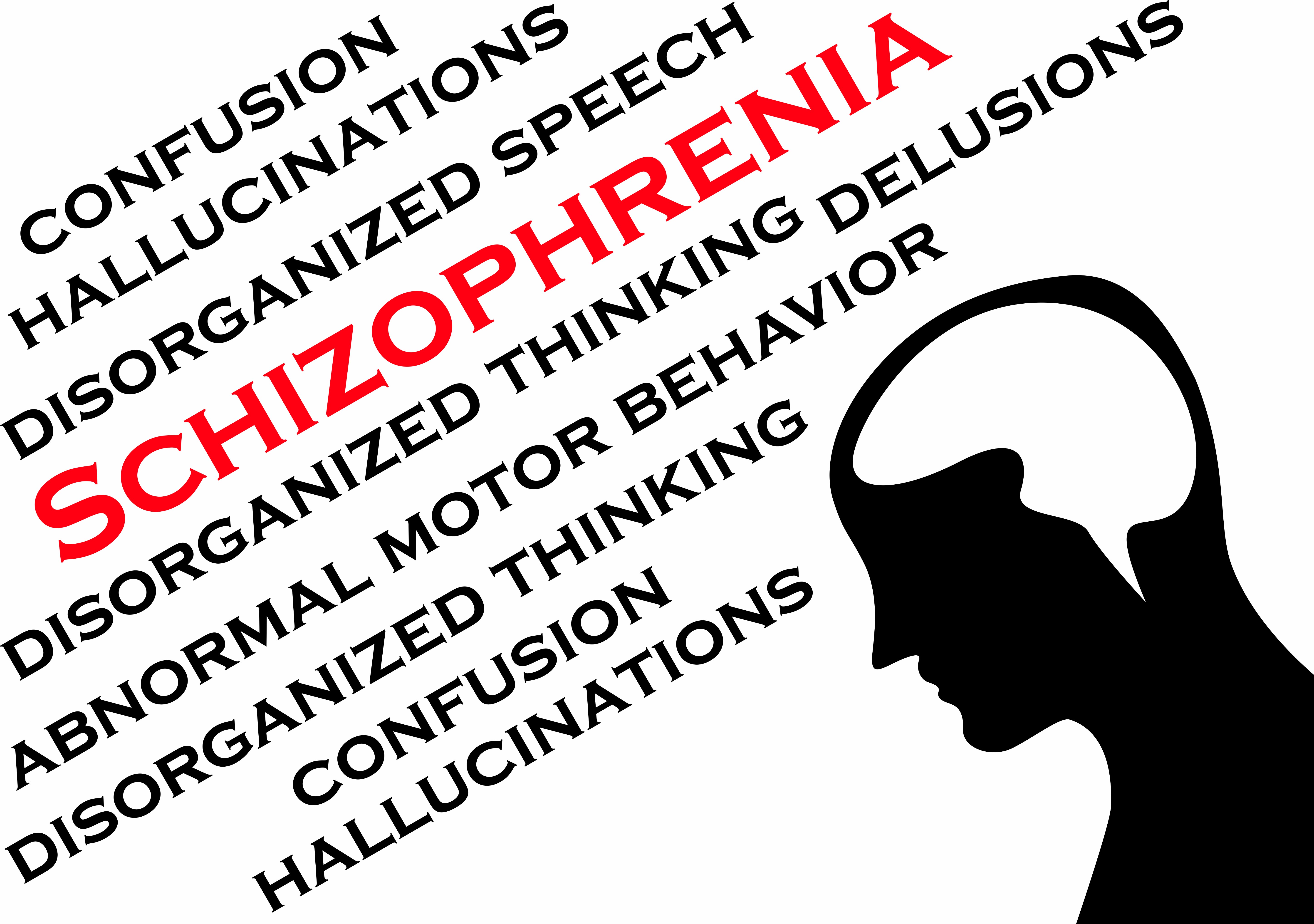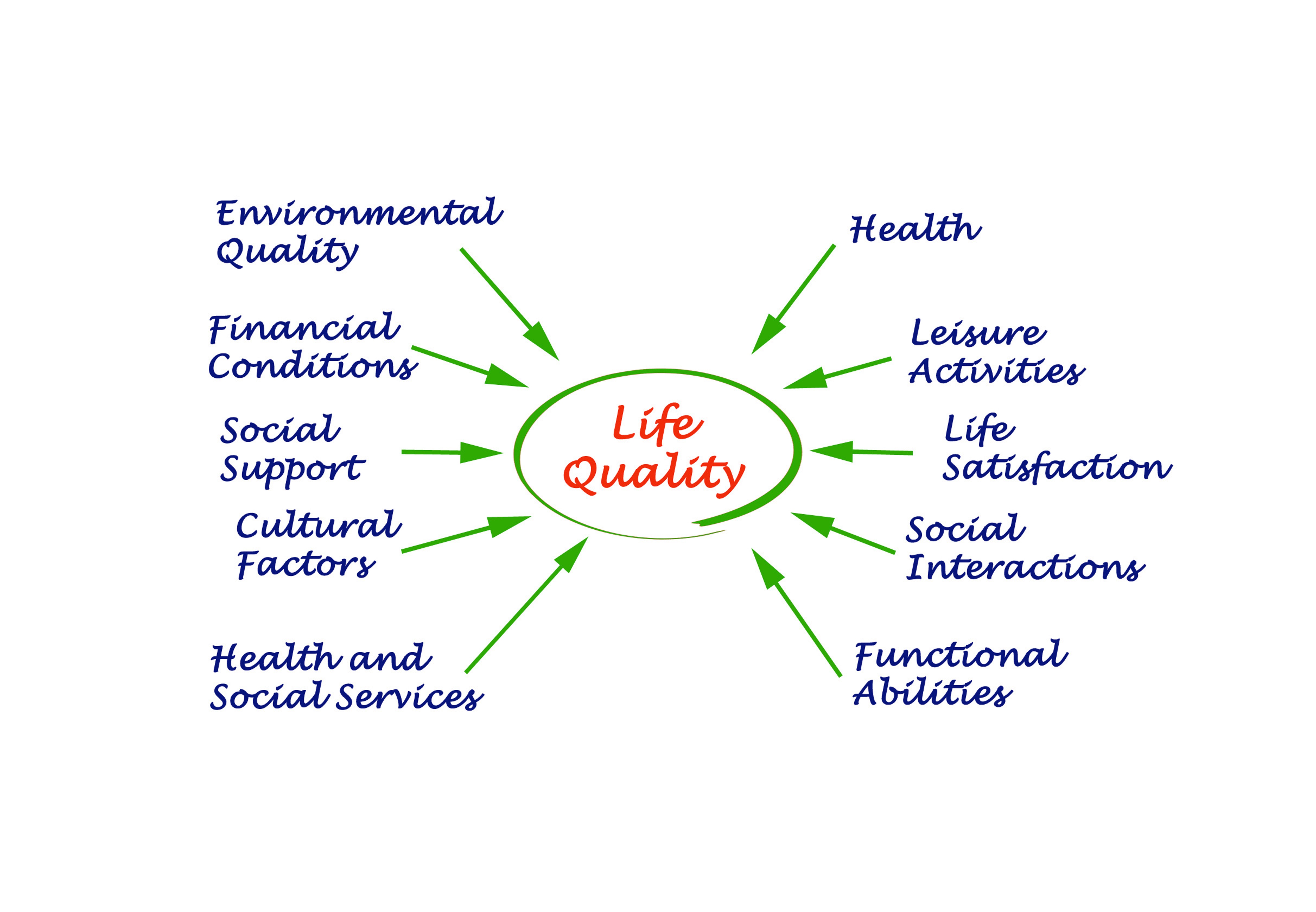Therapies for specific symptoms and populations
Therapies for particular symptoms and patient groups include therapy for high-risk groups, people with substance use disorders, children, and people with cognitive problems, or negative symptoms. Click on the tabs below to access all the information, or browse via the drop-down menu on the left.
Image: ©gstockstudio – stock.adobe.com

Therapies and medications for high-risk groups
What are high-risk groups? A key target of early intervention is “indicated prevention” for individuals at high risk of psychosis who have been identified with early signs of the disorder, but do not meet any diagnostic criteria. There are two key approaches for identifying people with early signs. The first approach is based on Huber’s Basic Symptoms, which focuses on a detailed way of describing phenomenological (subjective) disturbances in the domains of perception, cognition, language, motor function, will, initiative and level of energy, and stress tolerance. Because the basic symptoms refer only to subtle subjectively experienced abnormalities, they may reflect…

Therapies for childhood onset and early onset schizophrenia
What is childhood and early-onset schizophrenia? Childhood-onset schizophrenia is defined as schizophrenia with onset prior to the age of 13 years, and early-onset schizophrenia describes schizophrenia between the ages of 13 and 17 years. What is the evidence for psychosocial treatments for childhood and early-onset schizophrenia? Moderate quality evidence finds supportive therapy is better than cognitive behavioural therapy for improving symptoms, however cognitive behavioural therapy is better than supportive therapy for improving insight in children with early-onset schizophrenia. Education about the illness may be beneficial for improving symptoms and functioning. Moderate to low quality evidence finds cognitive remediation can improve…

Therapies for cognition
What are cognitive rehabilitation interventions? Cognitive impairment is a significant problem for many people with schizophrenia, effecting domains such as executive functioning, attention, memory and social cognition. These deficits interfere considerably with day-to-day function. Cognitive remediation or rehabilitation interventions usually take the form of repetitive exercises with or without computers and sometimes augmented by group sessions, strategy coaching and homework exercises, which serve as training for cognitive processes as well as social skills and communication. Strategy learning focuses on providing alternative strategies to compensate for the observed difficulties with cognition; in contrast, rehearsal learning is aimed at restitution of lost…

Therapies for dual diagnosis
What is dual diagnosis? Dual diagnosis is a term that refers to having both a mental illness and a substance abuse problem. Studies of dual diagnosis investigate the effectiveness and availability of treatments for improving outcomes relating to either diagnosis, such as symptoms, functioning, quality of life, substance use, or cognitive problems. What is the evidence for the effectiveness of therapy for dual diagnosis? Moderate quality evidence suggests a medium-sized benefit of motivational interviewing with or without cognitive behavioural therapy for reducing the amount of cannabis used, but no benefit for reducing frequency of cannabis use. There may also be…

Therapies for fathers with schizophrenia
We have not found any systematic reviews specifically targeting therapies for fathers with schizophrenia. Pending enough primary studies, we invite reviews on this topic to be conducted. Alternatively, we will endeavour to conduct our own review to fill this gap in the Library. September 2020

Therapies for first-episode psychosis
What is first-episode psychosis? People with a first episode of psychosis experience distressing symptoms such as unusual beliefs or abnormal behaviour (positive symptoms) and/or withdrawal or loss of interest in work or school (negative symptoms). Early intervention programs for schizophrenia and psychosis often combine many elements comprising both pharmaceutical and psychosocial therapies, and may involve enriched therapies that are tailored to an individual’s needs. The conclusions presented here are based on group data, and as such individual treatment programs need to be tailored by trained clinicians. Individual response to treatment can vary in terms of both symptoms and adverse effects….

Therapies for insight
What is insight? Insight, in the context of mental illness, refers to the ability to recognise that the observed features and symptoms of an illness are abnormal. A lack of insight into one’s illness is a feature of many psychiatric disorders, particularly psychosis. This can prevent effective medication adherence and has been associated with poorer long-term outcomes. What is the evidence for treatments to improve insight? Moderate to low quality evidence is unclear as to the benefit of cognitive behavioural therapy, psychoanalytical therapy, video self-observation or antipsychotics for improving insight into psychosis. There may be some benefit from individualised psychoeducation….

Therapies for internalised stigma
What is internalised stigma? Internalised stigma occurs within an individual, such that a person’s attitude may reinforce a negative self-perception of mental disorders, resulting in reduced sense of self-worth, anticipation of social rejection, and a desire for social distance. Stigma can be an important barrier for people with schizophrenia to seek out proper treatment. What is the evidence for treatments for internalised stigma? Moderate to high quality evidence suggests a small effect of reduced internalised stigma with targeted interventions comprising psychoeducation and peer-led group discussion. September 2020

Therapies for mothers with schizophrenia
Why do mothers with schizophrenia need specialised treatments? Mothers who have been diagnosed with schizophrenia face challenges in accessing and maintaining treatment programs, particularly when inpatient care is required. Mothers with dependent children may be less likely to seek treatments for their illness due to a fear of losing custody of their children, or due to difficulties in finding alternative care should hospitalisation be required. They may also find it difficult to properly adhere to any treatment programs due to the demands of childcare. Mothers have been shown to be particularly at risk of relapse in the months immediately following…

Therapies for negative symptoms
What are negative symptoms of schizophrenia? The negative symptoms of schizophrenia refer to an absence of normal functions. This may include (but is not limited to); blunted affect, which is a scarcity of facial expressions of emotion, reduced frequency and range of gestures and voice modulation, and restricted eye contact; alogia (poverty of speech); asociality (reduced social interaction); avolition (reduced motivation and often poor hygiene) and anhedonia, which is reduced experience of pleasure, often manifesting as scarcity of recreation, inability to experience closeness, and reduced interest in sexual activity. Psychosocial therapies may provide a clinical adjunct to pharmacological therapy, and…

Therapies for positive symptoms
What are positive symptoms of schizophrenia? Pharmacological treatments alone may provide insufficient respite from the positive symptoms of schizophrenia. Positive symptoms include hallucinations and delusions (or reality distortion symptoms) and are a well-documented feature of schizophrenia. Psychosocial therapies may provide a clinical adjunct to pharmacological therapy for these symptoms, and include cognitive behavioural therapy (CBT), hallucination focused integrative treatment, acceptance and commitment therapy, experience focused counselling, family intervention, metacognitive training, mindfulness, social skills training, and supportive therapy. What is the evidence for psychosocial treatments for positive symptoms? Moderate to high quality evidence shows small effects of greater improvement in positive…

Therapies for PTSD symptoms
What are trauma-focused therapies? Eye Movement Desensitisation and Reprocessing (EMDR) therapy and other trauma-focused therapies are generally beneficial for people with post-traumatic stress disorder (PTSD). They are also currently being investigated in patients with other diagnoses who have had exposure to traumatic events. EMDR therapy involves identifying past events that are causing dysfunction, identifying current circumstances that elicit distress, and desensitising internal and external triggers. During EMDR therapy, patients attend to the emotionally disturbing material in brief sequential doses while simultaneously focusing on an external stimulus, usually therapist-directed lateral eye movements. The therapist may teach the patient a variety of…

Therapies for quality of life
How is quality of life related to schizophrenia? Quality of life refers to an individual’s sense of satisfaction with their circumstances. This can be measured subjectively via interview and objectively via measures of overall health, social and material well-being and access to resources and opportunities. A key focus of quality of life research in schizophrenia is to identify factors that influence or predict a person’s satisfaction with their circumstances, which may then provide targets for therapeutic focus to improve quality of life. What is the evidence for psychosocial treatments for quality of life? Moderate quality evidence shows a small effect…

Therapies for schizoaffective disorder
We have not found any systematic reviews specifically targeting psychosocial treatments for schizoaffective disorder, as most studies on schizophrenia also include people with schizoaffective disorder. Please see the schizoaffective disorder diagnosis topic for related information. Pending enough primary studies, we invite reviews on this topic to be conducted. Alternatively, we will endeavour to conduct our own review to fill this gap in the Library. February 2022 Image: ©shidlovski – stock.adobe.com

Therapies for smoking
How is smoking related to schizophrenia? Tobacco smoking is very common among people with schizophrenia, who often show particularly heavy usage. This poses considerable health risks, may interfere with antipsychotic medications and may place a financial burden on the individual. Heavy cigarette use may contribute to the increased mortality and reduced life expectancy reported within the schizophrenia population. What is the evidence for interventions for smoking? Moderate to low quality evidence finds some long-term benefit of specialised smoking abstinence programs for people with schizophrenia over standard group therapy for smoking cessation. However, an American Lung Association group program was more…

Therapies for social functioning
What are social skills therapies? Poor social and interpersonal skills can prevent people from interacting effectively with other people. Programs targeting the improvement of social skills are designed to allow people to achieve greater social and community functioning. These programs involve training to improve social interactions, social cognition (accurately perceiving and understanding social interactions), self- and illness-management skills, community participation, and workplace skills. These programs can be organised through a day-centre unit that is attended by residents of either hospitals or those living in the community, and can be provided on an individual basis or in a group setting. What…

Therapies for treatment non-adherence
What is treatment non-adherence? Treatment non-adherence is the failure to comply with prescribed treatments, either pharmaceutical or psychosocial. Non-adherence to treatments reduces their effectiveness, delays illness remission, and increases the chances and severity of a psychotic relapse. Greater treatment adherence contributes to improved quality of life, improved attitudes towards treatment and medication, and increases confidence and insight into the disorder. What is the evidence for psychosocial interventions for treatment non-adherence? Moderate quality evidence suggests behavioural therapies alone or in combination with educational or affective interventions may improve treatment adherence compared to standard care. Moderate to low quality evidence suggests family…

Therapies for treatment resistance
What is treatment-resistant schizophrenia? Antipsychotic medications provide symptom relief and improvement in quality of life for many people with schizophrenia. However, for some, antipsychotic medications do not provide adequate relief from symptoms. Treatment-resistant schizophrenia has many definitions that vary depending on the individual study, but a broad definition includes those patients whose symptoms have not responded to antipsychotic medications, or only partially responded, after four or more weeks of treatment with appropriate doses. This topic assesses the effectiveness of psychosocial interventions for people with treatment-resistant schizophrenia. What is the evidence for psychosocial interventions for treatment-resistant schizophrenia? Moderate to high quality…

Therapies for unemployment
What is vocational rehabilitation? Vocational rehabilitation refers to any intervention aimed at reducing the high unemployment rates in people with schizophrenia and other severe mental illnesses. Vocational rehabilitation may have wide-reaching benefits, including improved symptoms and personal achievement, and reduced ongoing health care costs. Two key approaches for rehabilitation are prevocational training and supported employment. Prevocational training aims to increase employability by providing community-based preparation before people enter into the competitive workforce (employment that is paid at competitive, or award wages); examples include “clubhouses”, transitional employment, work crews, and skills training. Supported employment aims to assist people with schizophrenia find…

Therapies for weight gain
What are psychosocial treatments for weight gain? Weight gain is a well documented side effect of many antipsychotic medications. Weight management is important to ensure that the benefits of antipsychotic medications are not outweighed by the increased risk of physical disease. Excessive weight gain is a serious health concern, it is associated not only with reduced quality of life and social stigma, but can affect treatment adherence and increase morbidity (both physical and psychological) and mortality. Behavioural therapies are targeted at changing patterns of behaviour and actions that lead to an unfavourable consequence, while reinforcing favourable behaviours. Pharmacological strategies for…
Green - Topic summary is available.
Orange - Topic summary is being compiled.
Red - Topic summary has no current systematic review available.